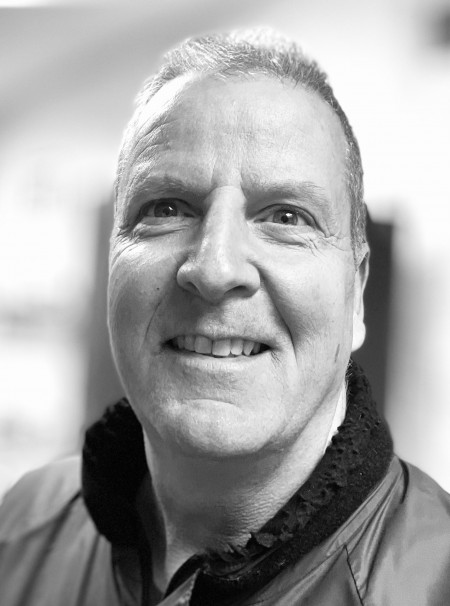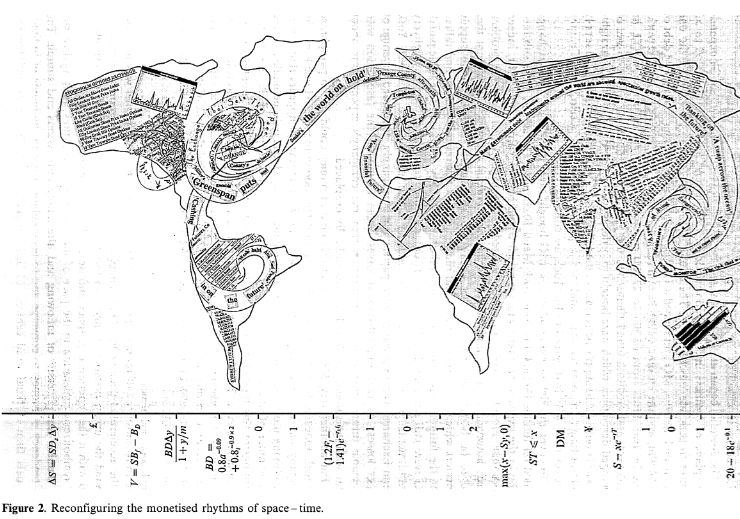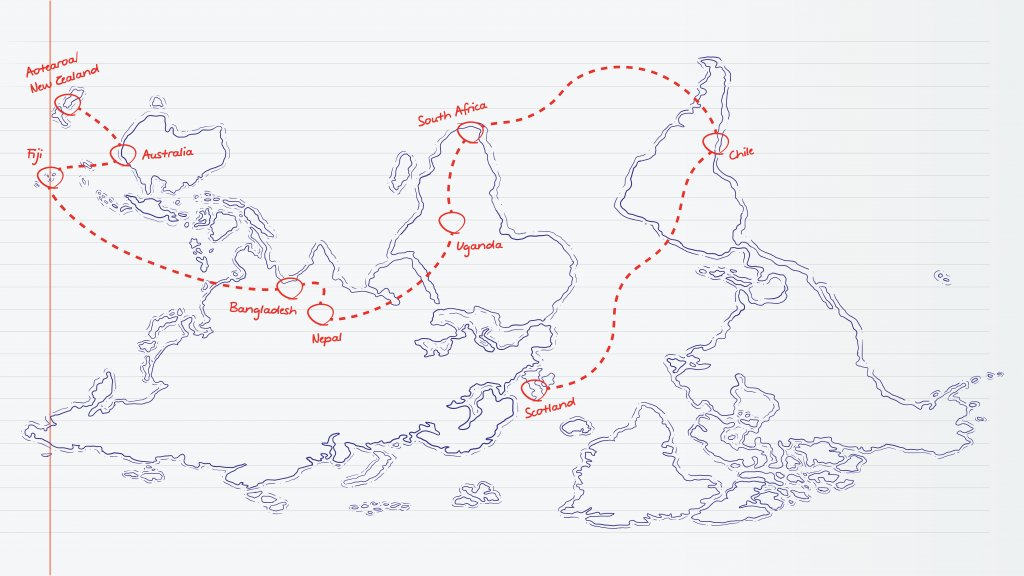
Prf Michael Pryke
Emeritus Professor of Economic Geography
Biography
Professional biography
I worked at the Open University (OU) for 30 years until I retired at the end of 2024 and am now an Emeritus Professor of Economic Geography.
After completing my PhD in the Geography Department at the OU in 1988 (supervised by Professors Doreen Massey and John Allen), I worked in the School of Management, UMIST, Manchester (on a financial services marketing project); the Department of Land Economy, University of Cambridge (on Joseph Rowntree Foundation funded projects examining the integration of private finance and social housing (outputs include The provision of private finance for social housing: An outline of recent developments in funding existing housing associations in England: Housing Studies: Vol 8, No 4; Private Sector Criteria and the Radical Change in Provision of Social Housing in England - M Pryke, C Whitehead, 1995 with Christine Whitehead); and the emergence of mortgage-backed securities in the UK (ouputs include An overview of mortgage‐backed securitisation in the UK: Housing Studies: Vol 9, No 1 with Christine Whitehead); then as a temporary lecturer in the Department of Geography, Queen Mary, University of London (where I wrote with Roger Lee Place Your Bets: Towards an Understanding of Globalisation, Socio-financial Engineering and Competition within a Financial Centre - Michael Pryke, Roger Lee, 1995 (with Roger Lee). I returned to the OU in 1994 as a lecturer in Geography.
Over the past 30 years years I have taken part in a range of module teams (OU speak for teaching), learning the skills of producing effective distance teaching materials along the way, undertaken research, and enjoyed supervising several PhD students.
During my time at the OU, I took on a number of administrative and management roles, most recently Head of the Department of Geography from 2012-2016, and then from 1st August 2016-2019 Founding Head of School, Politics, Philosophy, Economics, Development and Geography, then Founding Head of School of Social Sciences and Global Studies (SSGS) from August 2019 to July 2020. These roles, whilst a wonderful privelege, take thier toll, particularly during times of uncertainty and upheaval.
My last contribution to teaching at the OU was to lead the Geography Strand in the School’s new level 1 module D113 Global Challenges: Social Sciences in Action’ (Global Challenges: Social Science in Action | Open University | D113), first presented in 2023. This strand included a series of short videos 'Voices from the Global South' offering students the opportunity to embark on an international virtual filedtrip to learn about the climate crisis from a range of contexts and experiences across the 'Global South'. These videos are freely avaiable on OpenLearn, together with a commntary by Professor Farhana Sultana Voices from the Global South: confronting climate coloniality | OpenLearn - Open University
Although now an Emeritus Professor I continue to be involved in research projects, most recently on 'Lithium-ion battery wealth and value chains', a global interdisciplinary network, funded by the Danish Academy and led by Professor Duncan Wigan, Copenhagen Business School, and ‘Just Water Futures’, a network of academics, activists and policy experts from the Global North and Global South, led by Professor Andrea Muehlebach, Department of Anthropology and Cultural Research, Universität Bremen.
Research interests
From my PhD research onwards, published in Society and Space (An International City Going ‘Global’: Spatial Change in the City of London - M Pryke, 1991), Environment and Planning A (Virtual Special Issue: Property and Finance: Environment and Planning A: Sage Journals), and as a chapter 'Urbanizing Capitals: Towards an Integration of Time, Space and Economic Calculationin' in Money, Power, Space Money, (Stuart Corbridge, N. J. Thrift, Ron Martin), I have been interested in working at the intersections of geographies or spatialities of money and finance, drawing on ideas and influences from several disciplines such as cultural anthropology, political economy and economic sociology. The attraction has been to give a 'spatial twist' to approaching the workings of contemporary money and finance to foreground the times and spaces, the cutural and social formation of calculative practices of finance and their reach, viewed more recently as emerging financial topologies, all greatly enabled by dialogue, by curiosity driven converstaion, with past and present colleagues in Geography, Sociology and Politics at the Open University, and beyond. Examples include Monetized time-space: derivatives – money's 'new imaginary'?: Economy and Society: Vol 29, No 2 (with John Allen); Sage Academic Books - Cultural Economy: Cultural Analysis and Commercial Life and Take an issue: cultural economy and finance: Economy and Society: Vol 36, No 3 (both with Paul du Gay); Financialising household water: Thames Water, MEIF, and ‘ring-fenced’ politics | Cambridge Journal of Regions, Economy and Society | Oxford Academic (with John Allen); Money Cultures after Georg Simmel: Mobility Movement, and Identity - John Allen, Michael Pryke, 1999; The Production of Service Space - John Allen, Michael Pryke, 1994 (with John Allen); Geomoney: An option on frost, going long on clouds - ScienceDirect; Joining the Dots | Society for Cultural Anthropology; 'The white noise of capitalism' cultural geographies in practice - Michael Pryke, 2002; ‘‘This Time it’s Different’… and Why it Matters: The Shifting Geographies of Money, Finance and Risks’ in Handbook on the Geographies of Money and Finance.
In 2007 I was lucky enough to be a Fellow of the Institute of Advanced Studies, University of Durham (Modelling Fellows | IAS Durham), to work on ‘Money’s eyes’ (Money's eyes: the visual preparation of financial markets: Economy and Society: Vol 39, No 4), drawing on exploratory research funded by a British Academy ‘Small Grant’. I have also been a Visiting Fellow at the University of Melbourne, and UNSW, Sydney.
I was also fortunate enough to be a member of CRESC, an ESRC funded reseaech centre Centre for Research on Socio-Cultural Change (CRESC) - School of Social Sciences - The University of Manchester, and a founding editor of the Journal of Cultural Economy and editor-in-chief until 2017. The background to this Journal and links to the OU’s social sciences (‘Cultural revolutions: interview with Paul du Gay and Michael Pryke) can be read here https://www.tandfonline.com/doi/abs/10.1080/17530350.2021.2021970
Over recent years through my research on Thames Water with Emeritus Professor John Allen (Financialising household water: Thames Water, MEIF, and ‘ring-fenced’ politics | Cambridge Journal of Regions, Economy and Society | Oxford Academic) I have contributed to Radio 4's 'File on 4' programme 'Liquid Assets' ( File on 4 Investigates - Liquid Assets - BBC Sounds) and Will Hutton's Channel 4 programme 'Selling Off Britain', as well as to articles in The Guardian and The Conversation.
In recent years I have been involved in several funded research projects, most recently an Australian Research Council 'Discovery – Project': 'Tracing modes of infrastructure financing and their effects on cities'. This was a three-year project 2013-2016. The project team included Professor Phillip O’Neill (Urban Research Centre, University of Western Sydney) (PI) and Professor John Allen (Geography, Open University). The output from this research, co-authored with John Allen, was published as The everyday construction of value: A Canadian investment fund, Chilean water infrastructure, and financial subordination | Finance and Society | Cambridge Core) in Finance and Society, and as Financialising urban water infrastructure: Extracting local value, distributing value globally - Michael Pryke, John Allen, 2019 in Urban Studies.
I'm a member of the OpenSpace Research Centre.
Teaching interests

During my time with the Open University, I have been involved in production and presentation of several modules, from first year through to postgraduate, including: Introducing the social sciences (DD101); Social Policy: Welfare, Power & Diversity (D218); Living in a globalized world (DD205); Understanding cities (DD304) Unsettling Cities: Movement/Settlement - 1st Edition - John Allen - Do; and DD213 'Environment and Society'. Most recently I led the Geography strand in the School's new interdisciplinary level 1 module, DD113, ‘Global Challenges- social sciences in action’. In one week of the strand students embark on an international virtual fieldtrip to learn about the impact of the climate crisis from a range of conexts and voices across the Global South Learning from the Global South | OpenLearn - Open University
At postgraduate level I chaired the production of the Human Geography, Philosophy and Social Theory (D834), an ESRC recognised research masters module. That module’s core text, Using Social Theory: thinking through research (2003), was published by Sage and is included in Sage Reserach MethodsOnline Sage Research Methods - Using Social Theory . The module and text explain how thinking through ideas – whether from Rorty, Said, Irigaray or Latour – is an integral part of the research process, not an optional extra in the movement from asking research questions (e.g. Sage Research Methods - Using Social Theory - A Question of Language ) through to writing practices (e.g.Sage Research Methods - Using Social Theory - Situated Audiences. The book’s chapters help in the steps from ‘talking the theory talk, to walking the theory walk’ (Sage Research Methods - Using Social Theory - Introduction).
Publications
Book
Cultural economy: cultural analysis and commercial life (2002)
Book Chapter
Offshoring the Nation's water (2016)
Geographies of economic growth: money and finance (2011)
Counting: finance, debt, banking and the global casino (2006)
Property companies and the remaking of markets: stories from the 1990s (2002)
Journal Article
Cultural revolutions: interview with Paul du Gay and Michael Pryke (2024)
Financializing household water: Thames water, MEIF, and 'ring-fenced' politics (2013)
Money's eyes: the visual preparation of financial markets (2010)